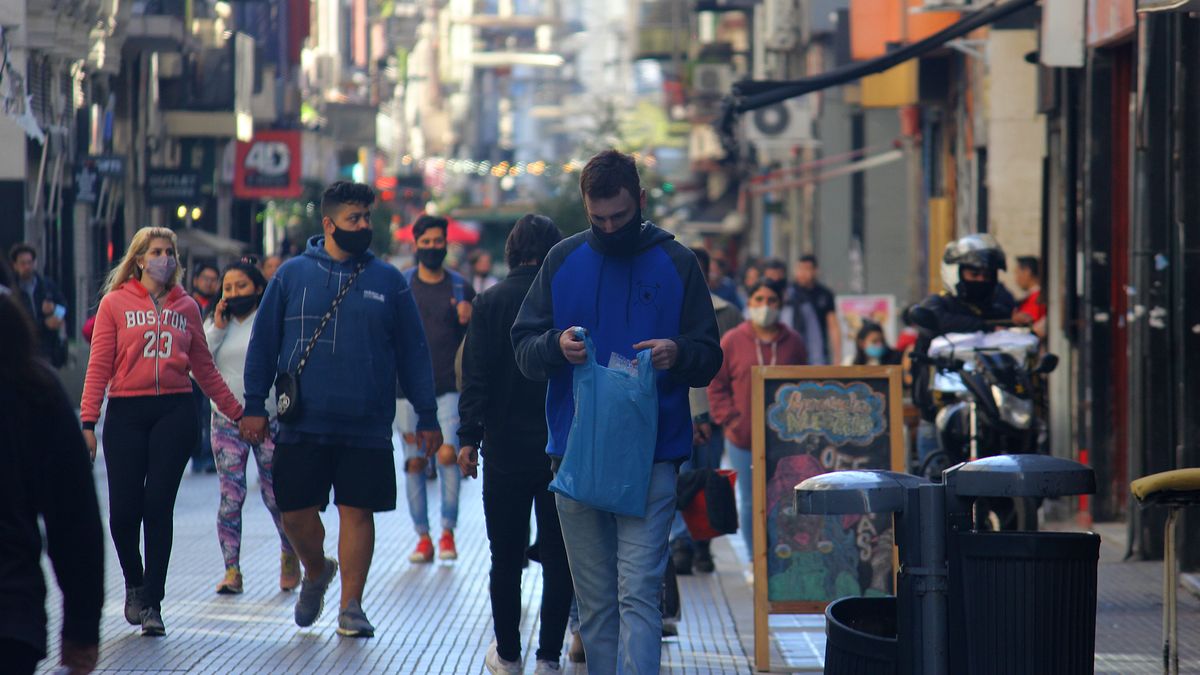days ago, the BBC published a report explaining how many Argentines “save by spending”. In the article, the Ecolatina consultant economist Santiago Manoukian pointed out that this phenomenon “it is known as leakage to consumption”: “People who have pesos try to get rid of them because they burn, so they use them to consume goods, especially those that have many imported components, and thus maintain the value of their money.”
“Those who have a greater possibility of saving, what they do is spend the pesos, ultimately. As high inflation is a strong disincentive to saving, it tends to initially have an impact on the consumption of expendable things: like going to eat at a restaurant or traveling”, Aldo Abram, director of the Fundación Libertad y Progreso, explained to Ámbito.
In this context, for example, a record level of occupation was seen during the winter holidays, with almost 16 million people who spent $147,313 million in tourist cities, according to CAME data.
alarms
Street-Florida-Promotions-Consumption-Pedestrian-Shops-Textile
The persistence of a high level of inflation affects consumption
Ignatius Petunichi
However, the continuity over time of high inflation will erode this trend, according to the analysts consulted. “These levels of inflation are clearly eating away at the level of purchasing power of the people. Particularly from the poorest sectors. With which, perhaps some who have a saving capacity, have a certain tendency to spend everything, because what you save later is worth much less. This is done, for example, by advancing purchases at the beginning of the month. Something that those with lower incomes also do: they collect their salary and make the expenses that they planned to do throughout the month as soon as possible, because they know that their income will lose value,” said Abram.
“But, in the long run, as the trend is towards impoverishment, people tend to consume less and less. This happens not only because of inflation, but because productive investment is also discouraged and many workers, consequently, earn less. In other words, people are becoming poorer and this leads to lower consumption. That is the trend in which we are, beyond some sporadic rises generated artificially as it happens before the elections”, added Abram.
This contraction is already observed, in part, in the massive consume. According to the latest official data from INDEC, In May, supermarket sales contracted 0.6% in year-on-year terms and 3.7% when compared to April. In wholesalers, the falls were 0.3% (annual) and 0.7% (monthly).
“Our data on mass consumption has been reflecting a drop in the last three months. Therefore, we are on the way to a drop in retail sales and in the purchasing power of the income of Argentines”, explained Damián Di Pace, director of the consulting firm Focus Market, who explained: “More Argentines have income, than those who have salaries. Therefore, when inflation is so high on a constant basis, it affects the activity and consumption of part of the inhabitants”.
Regarding income, Di Pace pointed out that surely “joints will be reopened, and that some type of recomposition will be attempted through the minimum vital and mobile salary for those who are outside the agreement.” “We will see what happens with retirement and pensions. What is not expected is that the salary will increase in real terms or that the income will improve. Therefore, in that sense, the expectations are not good”, added the director of Focus Market.
Wages
In relation precisely to income, last week the INDEC released the salary index for the month of May, where it was highlighted that the general level of wages registered a real increase of 1.1%. While the income of private and public sector employees grew in real terms (1.8% and 1.5%), those not registered lost 1.8%.
“Compared to December, the average of wage earners registered a fall of 0.9% in their assets in real terms. This is explained by the dynamics of unregistered employees, who had a real drop of 5.4% so far this year, while the rest of the workers remained at a level very similar to that of December 2021”, they pointed out. about it from the LCG consultancy.
And, facing what can be expected for this year, from the firm they analyzed: “With a projected inflation floor of 90% per year as of December, it is difficult to propose a scenario where wages win the race against price increases. At the moment, with a large part of the paritarias closed at an average of 67% per year, even with promises of revision, in most cases it seems that they will once again be left behind in the face of the increase in nominality”.
Source: Ambito
David William is a talented author who has made a name for himself in the world of writing. He is a professional author who writes on a wide range of topics, from general interest to opinion news. David is currently working as a writer at 24 hours worlds where he brings his unique perspective and in-depth research to his articles, making them both informative and engaging.




